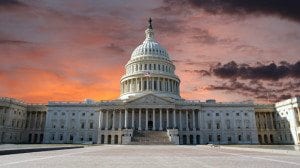This morning, Judge Henry E. Hudson of the Eastern District of Virginia presided over a summary judgment hearing for Virginia v. Sebelius. This case is the Constitutional challenge filed by Virginia Attorney General Ken Cuccinelli against ObamaCare, and shouldn’t be confused with the multi-state suit filed in Florida by over 20 Attorneys General. Both sides squared-off for just under three hours, and OCW was lucky enough to get a seat in the crowded courtroom.
Virginia’s case was argued by its Solicitor General, Duncan Getchell, Jr., who concentrated on two major arguments, both on the main theme that the individual mandate is a power grab by the federal government that is not authorized by the Constitution’s enumeration of powers. First, that the mandate is an “unprecedented’ and “unlimited” expansion of the Commerce Clause. Second, that the mandate cannot be justified as part of Congress’s taxing authority. Given the judge’s previous rulings and his questions and reactions at today’s hearing, it’s warranted to be cautiously optimistic that Judge Hudson is favorably disposed to the argument.
According to Getchell, the most unprecedented aspect of the mandate is that it regulates an economic status, not an economic activity. Previous federal precedent holds that Congress may regulate economic activities that influence interstate commerce, but there are no previous precedents which support ObamaCare’s mandate which forces people to pay a fine if they are uninsured. This argument was rebutted by Deputy Assistant US Attorney General Ian Gershegorn, who spoke on behalf of Secretary Sebelius. His position is that everyone uses health care, and the mandate forces people to buy insurance, which is just a commodity that changes the way individuals pay for their health care. Therefore, it is an activity and thus consistent with legal precedents.
On the issue of whether the mandate is a tax, the plaintiff’s argument was very strong. President Obama and other supporters of the law consistently and vigorously denied that the mandate was a tax. The law’s text itself insists that it is not a tax. When Gershegorn argued the opposite, Judge Hudson repeatedly interrupted him to ask whether ObamaCare supporters in Congress and the Administration were deliberately misleading the American people when they said the mandate wasn’t a tax. For a video of the President getting angry with George Stephanopolous about this issue, watch this interview.
The final issue was a very technical one, which involves the “severability” of the individual mandate. If the mandate is “severable,” then the law will withstand the striking down of the mandate. If not, then once one section of the bill is declared unconstitutional, then the whole law is unconstitutional. Laws typically have a severability clause, so this is not an issue, but ObamaCare was passed in such a rushed and reckless manner that it was overlooked. If the mandate is upheld, this point will be moot, but if it isn’t then this issue is crucial.
As the judge concluded the hearing, he said that he plans to make his decision by the end of the year, so keep watching the “Legal Challenges” section of ObamaCare Watch for the latest updates. For more information about this issue, visit our primer, which has material on the mandates, taxes, and legal challenges.








